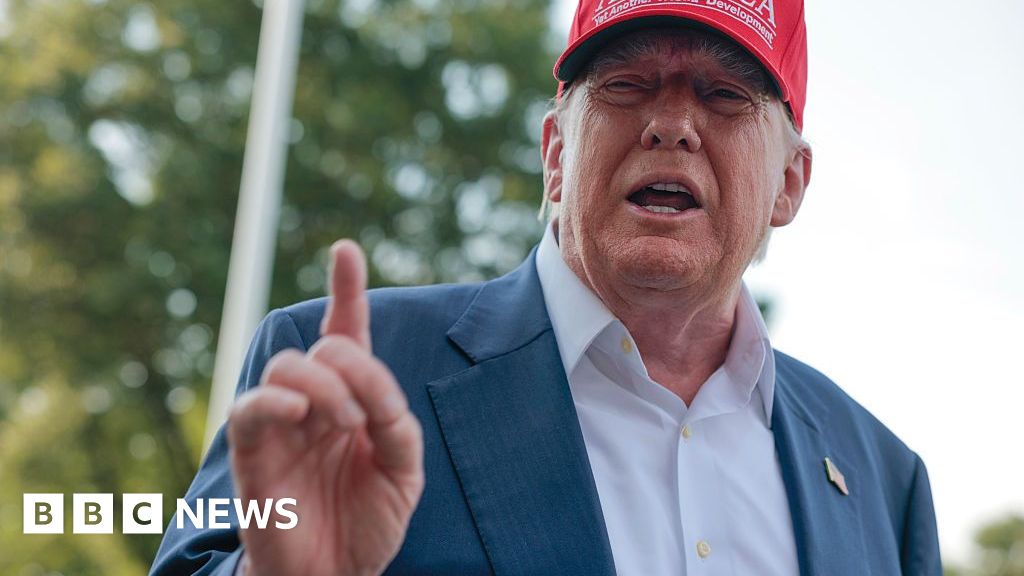
President Donald Trump has announced a significant trade deal with Vietnam, granting the United States full access to Vietnamese markets. This landmark agreement, revealed through a social media post, will see Vietnam eliminate tariffs on U.S. products, a move that could reshape trade dynamics in the region.
Under the terms of the deal, the U.S. will impose a 20% tariff on imports from Vietnam, a reduction from the previously planned 46% levy set to take effect next week. This adjustment is part of Trump’s broader strategy of “reciprocal” tariffs, initially announced in April.
Global Trade Landscape Shifts
The announcement comes as other major economies, including the European Union and Japan, scramble to finalize their own trade agreements with the U.S. before planned tariff increases. Trump’s aggressive trade policies have prompted a flurry of negotiations worldwide, as countries seek to mitigate potential economic impacts.
Tariffs, essentially a tax on imports, are typically absorbed by the importing company, which can choose to pass the cost onto consumers. This has raised concerns among U.S. trading partners about reduced demand for their goods, potentially affecting global trade flows.
Implications of the “Great Deal of Cooperation”
In what Trump has termed the “Great Deal of Cooperation,” the U.S. will also apply a 40% tariff on goods trans-shipped through Vietnam. This process, often used to circumvent tariffs, has been a point of contention. Peter Navarro, Trump’s senior counselor on trade, claims that a significant portion of Vietnamese exports to the U.S. are actually Chinese products routed through Vietnam.
“Vietnam will do something that they have never done before, give the United States of America TOTAL ACCESS to their Markets for Trade. In other words, they will ‘OPEN THEIR MARKET TO THE UNITED STATES,’ meaning that we will be able to sell our product into Vietnam at ZERO Tariff.” — President Donald Trump
Vietnam’s Role as a Manufacturing Hub
Vietnam has emerged as a crucial manufacturing center for global brands such as Nike, Apple, and Lululemon, benefiting from companies relocating factories from China to avoid U.S. tariffs. The initial news of the trade deal led to a rise in share prices for firms producing goods in Vietnam, although these gains were tempered by the announcement of a 20% tax on exports to the U.S.
Adam Sitkoff, executive director of the American Chamber of Commerce in Hanoi, expressed optimism about the deal’s potential benefits for Vietnam. “Companies that ship from [Vietnam] to the U.S. are going to keep doing it,” he told the BBC World Business Report. However, Sitkoff raised questions about the definition and enforcement of trans-shipping tariffs, describing it as “a vague and often politicized term in trade enforcement.”
Political and Economic Ties Deepen
In a related development, Vietnam’s General Secretary To Lam extended an invitation to Trump to visit the country during a phone call on Wednesday. This diplomatic gesture underscores the strengthening ties between the two nations.
Meanwhile, the Trump family has announced plans for significant development projects in Vietnam. The Trump Organization, in collaboration with local business Kinh Bac City Development, has secured government approval for a $1.5 billion investment in hotels, golf courses, and luxury real estate. Additionally, the organization is exploring potential sites for a Trump Tower in Ho Chi Minh City.
Historical Context and Future Prospects
Trump’s initial imposition of steep tariffs on global trading partners in April, citing a lack of “reciprocity,” marked a turning point in international trade relations. Following a temporary reduction to 10%, many countries have sought to negotiate trade deals with the U.S., leading to agreements with Britain and a temporary easing of retaliatory duties with China.
The new trade deal with Vietnam represents a significant step in Trump’s broader strategy to recalibrate U.S. trade relationships. As more countries engage in negotiations, the global trade landscape continues to evolve, with potential long-term implications for international economic dynamics.
As the world watches, the next steps in U.S.-Vietnam trade relations could set the stage for further developments in global commerce, influencing economic policies and partnerships in the years to come.






